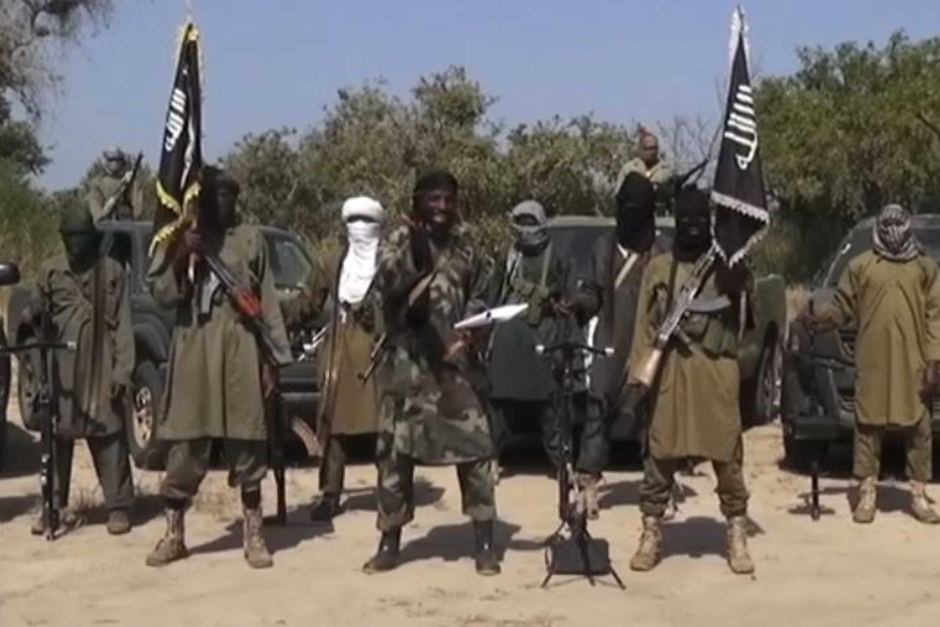Boko Haram Forces Large Scale Displacement In Nigeria
Boko Haram

LONDON: The mood in Nigeria was positive as the country made political history -- with Muhammadu Buhari being sworn in as President in May this year. Buhari’s win -- historic in Nigeria as it’s the first time an opposition candidate beat the incumbent, namely Goodluck Jonathan, to win a presidential election -- is attributed to the perception that he is going to be tough on Boko Haram militants who have established themselves in the country’s troubled north east.
However, since then, a wave of attacks by Boko Haram militants has forced tens of thousands across the border to Niger's arid southeastern region of Diffa -- worsening a dire humanitarian situation.
The flood of refugees comes as Niger declares a state of emergency to tackle the insurgency, bringing Diffa’s economy to a standstill as revenues from fishing and trade in peppers take a major hit. "We fled all night. I was very scared and I'm still scared. We left everything behind," Reuters quoted Lagari Fogo, a Nigerian refugee at a camp in Gagamari, who said Boko Haram attacked his village 11 days ago.
The makeshift camps are a collection of draped plastic over thorny bushes, under which people and their meagre belongings are gathered. We are suffering. We are suffering and it is not over," Adam Abdoulaye, 35, a father of seven, told Reuters.
Meanwhile, Boko Haram continues to step up attacks. On Tuesday, Boko Haram militants burned down houses, including the family home of Nigeria’s new army chief, in Buratai, Borno State. The attack came two days after chief of army staff, Tukur Buratai, vowed to defeat the militants.
The origins of Boko Haram, the official name of which is Jama'atu Ahlis Sunna Lidda'awati wal-Jihad, which in Arabic means "People Committed to the Propagation of the Prophet's Teachings and Jihad", sheds light on the specific social-economic context that has determined developments. As parts of Nigeria fell under British control in 1903, locals came to view western education with suspicion, and this resistance continued as Nigeria gained independence, with many muslim families refusing to send their children to government run “western schools.” The problem was compounded by the lack of priority given to education by the state government.
Located in this context, in 2002, Muslim cleric, Mohammed Yusuf, formed Boko Haram in Maiduguri with the intention of setting up a religious complex, which included a mosque and an Islamic school. Many families across Nigeria and the region enrolled their children in Yusuf’s school. The movement did not remain restricted to education, with the eventual aim of an Islamic state being conceived within the struggle for power that was rooted in an anti-western discourse. In 2009, the group carried out a series of attacks on official buildings in Maiduguri. The group was defeated and Yusuf was killed, but fighters regrouped and in 2010, attacked a prison in Bauchi state, setting free hundreds of the groups’ supporters.
Since then, the group’s attacks have increased in severity.The context is far more complicated than a mere religious rendering can do justice to. Nigerian American author and columnist offered a voice of reason when he tweeted: “I understand the impulse to "do something." But Boko Haram is irreducibly complex. Makes Kony look like child's play” and “The history of the Nigerian military "doing something" about Boko Haram has been one of mass murder of civilians.”
Tackling Boko Haram involves reducing the region’s chronic poverty and building an education system which gains the support of local muslims - measures which are not being given priority to by either of the political candidates and thereby ensuring that no matter what the result, post-election Nigeria too will be straddled in the time of Boko Haram.



